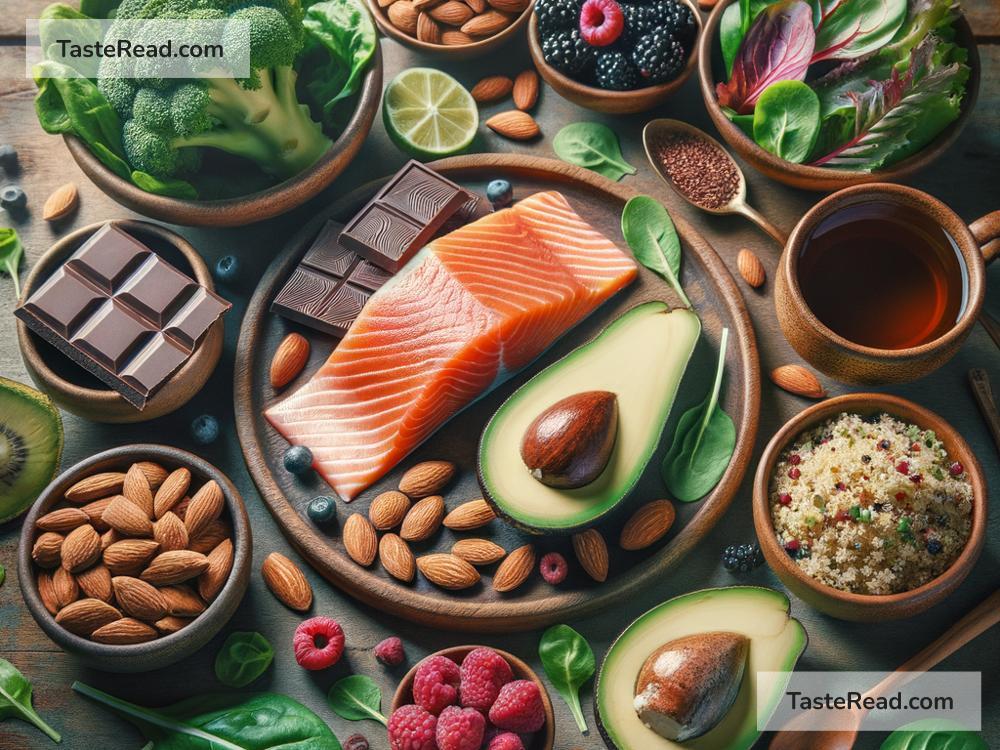Foods That Promote Cortisol Regulation: Eating Your Way to a Healthier Mind and Body
Do you ever feel stressed out or overwhelmed? If you do, you’re not alone! Stress is a part of life, and your body manages it using a hormone called cortisol. While cortisol is helpful in small doses—it helps you react quickly to danger or tackle challenges—too much cortisol can be harmful. Chronic stress can cause your cortisol levels to stay high, which impacts your mood, sleep, energy, and even your physical health.
Luckily, what you eat can play a big role in managing this stress hormone. Certain foods help your body regulate cortisol levels naturally, keeping them balanced and preventing stress from taking over your life. In this blog post, we’ll explore simple, everyday foods that promote cortisol regulation, so you can fuel your body and mind for lower stress levels.
What Is Cortisol and Why Does It Matter?
Cortisol is often called the “stress hormone” because your body produces it in response to stress. When you face a challenging situation, your adrenal glands release cortisol to prepare your body to either “fight” the problem or “run away” from it. You might notice your heart pounding, your muscles tensing, or your thoughts racing during these moments—thank cortisol for that!
While cortisol is useful in short bursts (like giving you extra energy during a workout or helping you focus on a big task), long-term stress can cause your cortisol levels to stay elevated. This can lead to problems like insomnia, weight gain, fatigue, anxiety, and even weakened immunity. That’s why managing cortisol is so important.
How Food Helps Regulate Cortisol
Balanced nutrition allows your body to better handle stress. Certain foods contain vitamins, minerals, and compounds that reduce inflammation, support adrenal health, and encourage cortisol to return to normal levels after a stressful event. Eating a varied, nutrient-rich diet is key to keeping your stress hormone in check.
Foods That Promote Cortisol Regulation
1. Leafy Greens
Leafy greens like spinach, kale, and Swiss chard are high in magnesium, a mineral known for its calming effects. Magnesium helps lower cortisol levels by supporting healthy adrenal gland function and reducing stress in your body. Incorporate salads, smoothies, or sautéed greens into your meals to reap these benefits.
2. Fatty Fish
Salmon, mackerel, and sardines are rich in omega-3 fatty acids, which are amazing for fighting inflammation and supporting brain health. Omega-3s can reduce the production of cortisol in stress-inducing situations. Aim to eat fatty fish 2-3 times a week or consider adding a fish oil supplement to your routine.
3. Whole Grains
Whole grains like oats, quinoa, and brown rice contain complex carbohydrates that promote the production of serotonin, a “feel-good” chemical in your brain. Serotonin can help lower cortisol levels by reducing stress and improving your mood. Choose whole grains over refined carbs to avoid blood sugar spikes that can increase cortisol.
4. Avocados
Avocados are packed with healthy fats and potassium, which are great for stress management. Potassium helps regulate blood pressure, a key factor influenced by cortisol during stressful moments. Adding avocado slices to breakfast toast, salads, or smoothies is an easy way to enjoy its cortisol-lowering benefits.
5. Nuts and Seeds
Nuts like almonds, walnuts, and cashews, along with seeds like chia and flaxseeds, are loaded with healthy fats, magnesium, and antioxidants. These nutrients help combat stress and inflammation while keeping your cortisol levels in check. A handful of nuts or a sprinkle of seeds on yogurt or oatmeal makes for a satisfying, stress-friendly snack.
6. Berries
Blueberries, strawberries, and raspberries are rich in vitamin C and antioxidants, which reduce oxidative stress in the body. Oxidative stress causes the body to produce more cortisol, so foods that fight it can help you stay calm and centered. Enjoy berries fresh, frozen, or blended into smoothies.
7. Herbal Teas
Certain teas, like chamomile, green tea, and peppermint tea, have calming effects on the body. Green tea contains an amino acid called L-theanine that promotes relaxation and can lower cortisol levels. Instead of reaching for coffee during a stressful day, try a cup of herbal tea to support stress relief.
8. Dark Chocolate
Good news for chocolate lovers! Dark chocolate (with at least 70% cocoa) contains flavonoids that help reduce cortisol levels. It also boosts serotonin, which can lift your mood during tough times. Stick to small portions to avoid overloading on sugar.
9. Probiotic Foods
Foods like yogurt, kefir, sauerkraut, and kimchi support gut health, which is closely linked to cortisol regulation. A healthy gut produces chemicals like serotonin and dopamine that lower stress and improve resilience to stressors. Look for minimally processed probiotic foods for maximum benefit.
Additional Tips for Managing Cortisol
Food is only part of the puzzle when it comes to managing cortisol. Pair a healthy diet with stress-relief techniques like regular exercise, mindfulness, deep breathing, and quality sleep for the best results. Also, stay hydrated—water helps your body flush out excess stress hormones.
Final Thoughts
Stress may be unavoidable, but you can take control of how your body responds to it. Eating foods that support cortisol regulation is an easy, natural way to lower stress levels and promote overall well-being. Start incorporating magnesium-rich leafy greens, brain-boosting fatty fish, and antioxidant-loaded berries into your meals to enjoy a calmer, healthier you.
Remember, small changes can make a big difference. With every stress-friendly snack or nourishing meal, you give your body the tools it needs to handle challenges better. Eating well isn’t just good for your waistline—it’s good for your peace of mind, too!
So, the next time life feels overwhelming, let your plate become your source of calm. You’ve got this!


